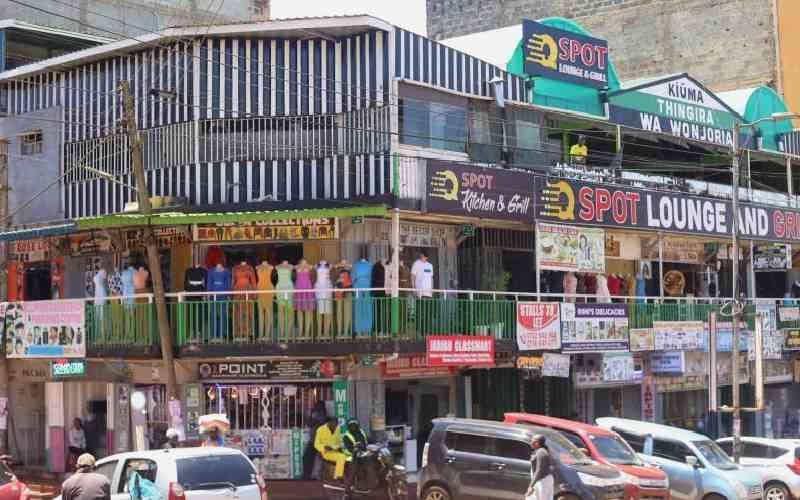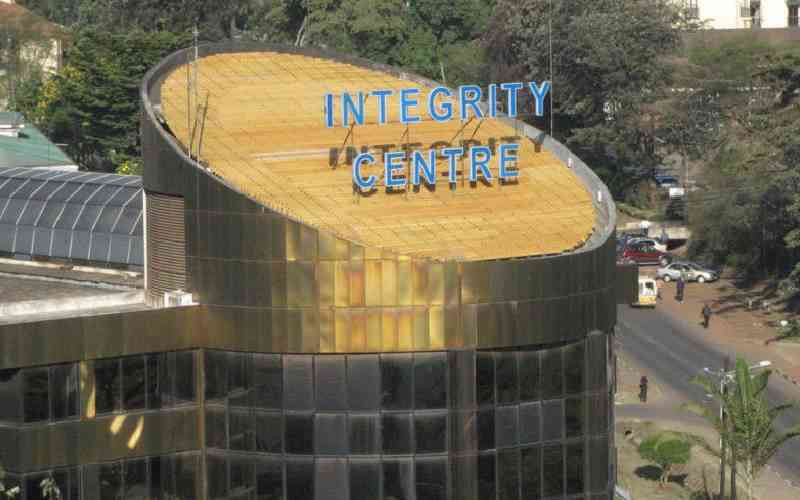Kiuma Thingira wa Wonjoria building within Nyeri Town which houses several businesses within its fabricated storied structure along Kimathi way, April 22, 2024. [Mose Sammy, Standard]
×
The Standard e-Paper
Home To Bold Columnists







